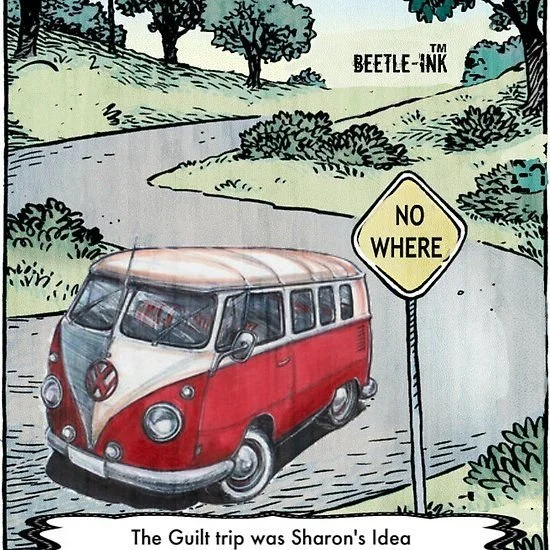JUNE: Guilt Trips
“Pack your bags! We’re going on a guilt trip!”
A guilt trip is a manipulation of another’s feelings to make others feel bad or sorry. Guilt trips occur most frequently in close relationships, where the guilt-tripper knows the other cares and loves them. For example, a loved one calls to ask, “When are you coming over? I never see you.”
Comments like these can be tormenting because it implies we don’t care when in our mind we are doing our best to meet their needs. There’s a boundary we need to establish so we don’t ride that guilt trip.
People can resort to passive-aggressive comments when they don’t have the skills or language to communicate their needs or feelings. We must help others see that a guilt trip pushes us away, producing the opposite of what that person wants, which is to be closer. For example, “Thanks for coming last week, I loved seeing you. I can’t wait to visit with you again.”
In this conversation, consider what types of communication push you away, such as criticism, complaints, guilt trips, eye-rolling, sarcasm, etc. Talk about ways to counter a hostile jab without jabbing back, ignoring it, or shutting it down.
Do your loved ones know when they’ve crossed a line? Do they expect to be called on it?
How do you push back when they cross a line?
If someone’s feedback is more hostile than helpful, what is a good way to call it out? For example, “We don’t speak to each other that way.”
Is it helpful to teach a loved one how to ask for what they need by giving them words that would feel better to you? For example, “Mom, it would mean a lot to me if you would invite me to visit by saying something appreciative. Like, Thanks for coming last week. I loved seeing you. It means a lot to me when you come to visit me.”
Takeaways.

